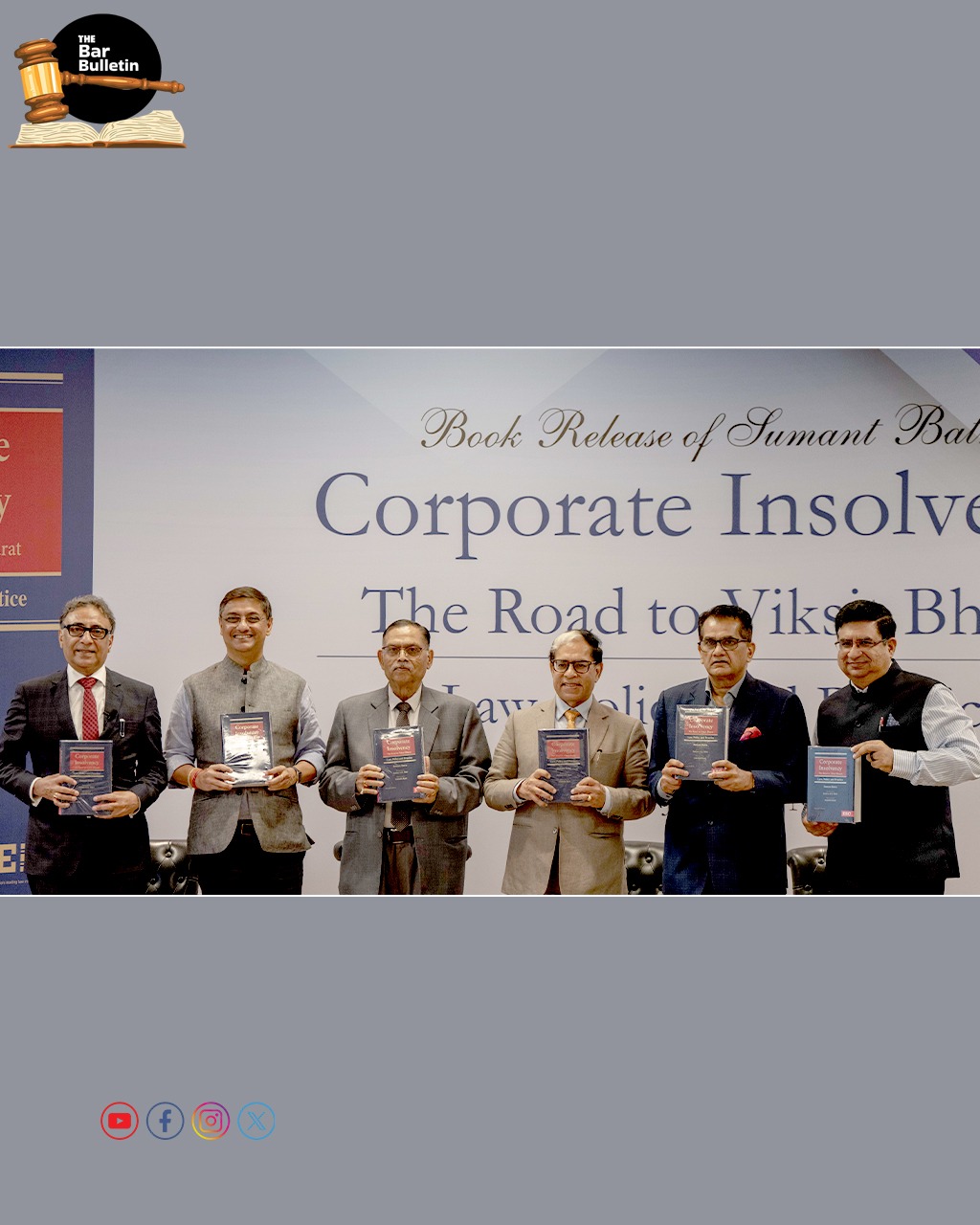On 11 July 2025, a distinguished panel of jurists, economists, and policymakers came together to release the second edition of eminent insolvency expert Sumant Batra’s landmark book, Corporate Insolvency: Road to Viksit Bharat published by EBC. Building on the success of his 2017 work, the updated edition charts India’s insolvency journey across three pivotal phases, the pre-IBC era, the present state of the law, and a forward-looking vision to 2047.
Described by global insolvency authority Mark Bloom of Baker McKenzie as
“a history, a hornbook, a treatise, and a visionary call to action,”
the book has been hailed as a timely and comprehensive chronicle of India’s insolvency evolution. Bloom emphasized its value in shaping legal development toward India’s aspirational goal of becoming a Viksit Bharat, a developed nation by 2047.
Justice A.K. Sikri, former Judge of the Supreme Court of India and now International Judge at the Singapore International Commercial Court, who also penned the foreword, formally launched the book. Calling the work “phenomenal,” he described it as “not just a statutory analysis, but a vision document, one that rightly links corporate insolvency with India’s broader economic goals.” Praising Batra’s deep engagement with policy and jurisprudence, Justice Sikri stated,
“There is no parallel to Batra in this domain. His work has been pivotal to India’s progress.”
Joining the praise, Justice Ashok Bhushan, Chairperson of the NCLAT and former Supreme Court Judge, noted, “This book is more than scholarship, it is memory, blueprint, and moral compass.” He called it essential reading not just for legal professionals, but also for policymakers, regulators, and economists.
Amitabh Kant, former G20 Sherpa and CEO of NITI Aayog, lauded the book as a “vision document for 2047” and referred to the IBC as a “big bang reform.” Calling Batra’s work “a bible in the field,” Kant emphasized the need for bold reforms, including judicial impact assessments, tribunal re-engineering, and a robust cross-border insolvency framework, all of which are addressed in the book.
“To become a $35-trillion economy by 2047,” he said, “India needs fast, mission-driven mechanisms to resolve commercial disputes, and IBC is at the core of that vision.”
Sanjeev Sanyal, Member of the Prime Minister’s Economic Advisory Council, who collaborated with Batra during the early implementation of the IBC, highlighted the book’s value from his perspective as both economist and historian. “All economic progress is rooted in the architecture of creative destruction,” he remarked, commending the book for documenting the institutional memory of one of India’s most consequential reforms. He particularly appreciated Batra’s focus on positioning India as a future global restructuring hub.
In a conversation moderated by former NCLAT Member Shreesha Merla, Batra explained the nine-year gap between the first and second editions. “I waited for jurisprudence to evolve to a point where it could be meaningfully documented,” he said. Reflecting on achievements, he pointed to the successful implementation of a highly complex reform, the stabilisation of the banking sector, and the creation of institutions like the Insolvency and Bankruptcy Board of India (IBBI), a regulatory model with few global equivalents.
However, Batra also expressed concern about certain shortcomings. He pointed to delays in resolution, the overreach of Section 29A which he said discourages entrepreneurship, and the urgent need to reinvent the NCLT as a modern, efficient adjudicatory body.
At the heart of his message was a call for collective aspiration. “To become a developed nation,” Batra said,
“we must unlock the might of 1.4 billion people not just from the top, but from every layer of society.”
Among his 33 key takeaways, one recommendation stood out for its cultural resonance: the need to create an Indian version of the American Dream, a system that destigmatises failure, offers dignified exits, and empowers youth to take entrepreneurial risks.
Corporate Insolvency: Road to Viksit Bharat is not just a retrospective on legal reform, it is a forward-facing manifesto for an India that seeks to lead globally through sound economic architecture, modern institutions, and inclusive growth.



